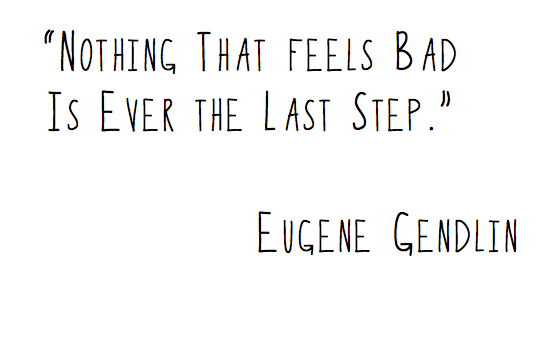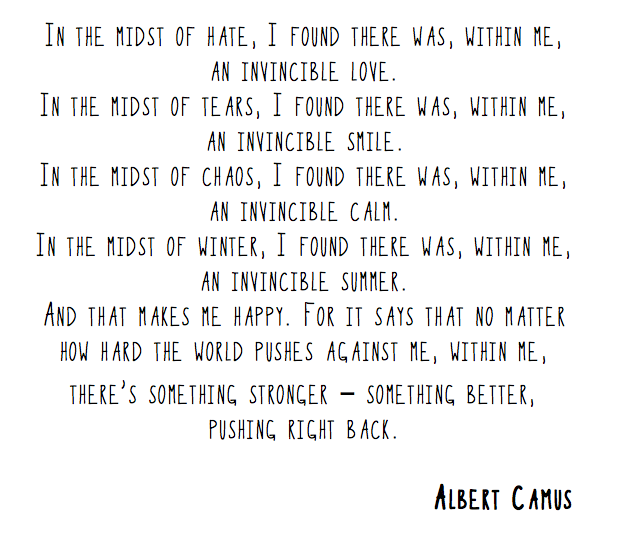Pandemic Life, Such as It Is
Resilience in Winter: Allowing Emotional Hibernation
February 19, 2021

I just read this lovely article by AEDP therapist Eileen Russell and wanted to share it with you. Some quotes that really struck me:
“I think of resilience as comprising processes that human beings use on behalf of the self to both survive adversity and also to thrive in favorable conditions. To my mind, resilience is not about being “strong” in the sense of being unaffected by what life throws at us. Increasingly I think it is truly about flexibility. How do we stretch into spaciousness and opportunity when it presents itself for our growth and expansion and also know when and how to contract and save energy when conditions are truly inhospitable?”
“So, can human beings contract without shutting down completely? Can we find ways to surrender to the withdrawal that happens under experiences of chronic stress without turning against ourselves or each other? If we let go of the unrealistic expectation that we could be feeling so much better if only we (fill in the blank), might we experience this mid-winter period of our lives as slightly more bearable and circumscribed? Can we develop some gentleness toward our failure to “overcome” our circumstances?"
“It is true that none of us can go to sleep for the winter. But perhaps metaphorically it is helpful to imagine that nature may have endowed people with capacities to take in less and to put out less when it is necessary for our psychic survival. If we think of this state as a kind of psychological hibernation we might be less inclined to pathologize it or to fight it as if we could actually create the stimulation and possibilities that are available to us under other circumstances. If there is a season for everything, perhaps this time invites us to rest and let go of our need to turn reality into what it is not. If we allow for a certain psychological hibernation now, we might trust ourselves to welcome “spring” when it comes. Because it will come.”
How to Not Ruin Your Relationship in Quarantine
April 01, 2020

I remember reading a headline a few weeks (years??) ago that the divorce rate was increasing for Chinese couples post-coronavirus quarantine. And boy, do I get it. While some of us are cooped up alone and dealing with incredible loneliness (which is traumatic in itself), many of us are sequestered with our partners…all the time, every day, in a small space, during a time of incredible change, uncertainty, and anxiety. Gee, whatever could go wrong?
As I sit with my clients this week, I find myself often reviewing basic relationship skills, like how to communicate hurt, how to respond to a loved one's pain, and how to receive comfort. I'd like to share those tips with you now, in the hopes they will help your relationship be a source of strength and security in these troubled times. (And BTW, these tips apply to just about any important relationship — parent-child, close friend, or even your relationship with yourself!) An effective repair conversation with your partner is as easy* as 1-2-3:
Step 1. Notice what you're feeling and communicate it — vulnerably — to your partner. When something happens that makes you want to react — get critical, get defensive, pull away, shut down, nag, etc. — take a moment to slow down, check in, and ask yourself, "What am I feeling?" Anger can often be a cover for more vulnerable emotions. Honor that the anger is real and valid, but also ask yourself if you might be feeling a more tender emotion — are you feeling sad? Scared? Lonely? Inadequate? When you know what you're feeling and you can say it softly and vulnerably, it's time to share that with your person.
Step 2. When you receive your partner's feelings, your presence and care are the solution. So many of us respond to pain in our loved ones by inadvertently dismissing, minimizing, or intellectualizing. While we may have truly excellent advice to offer, it's important to remember that an activated brain can't take in any such guidance. We must first come alongside our loved ones and meet them at the emotional level vs. offering suggestions for change. In short, we must connect before we correct. We do this in 3 key ways:
a) Validation. I can totally see why that made you scared. I get it. I would feel that way, too, in your shoes.
b) Empathy. I'm so sad to know you're going through this. I feel such a pain in my heart hearing how alone you're feeling.
c) Undoing Aloneness. I'm here with you. We'll get through this together.
So, let's say your husband has just told you he felt really lonely this week when you were working a lot to keep your small business afloat. Instead of getting defensive or making suggestions for what he could do to manage the lonely feelings, try validating, empathizing, and undoing his aloneness. "Oh, sweetie, I can totally see why you've been feeling alone. I have been so busy and overwhelmed. I feel so sad knowing you're feeling like that. I'm so glad you're telling me. I'm here and I love you."
Step 3. Receive your partner's care. It's an often overlooked step, but a really important one. You're hurt, your partner is trying to repair with you — allow the repair! Notice any parts of you that want you to keep your guard up. Honor their fear that you'll be hurt again, but try to be open to a genuine effort at reconnecting. All relationships have bumps, especially when partners are stressed out (like, say, during a global pandemic). Offer as much grace as you possibly can to each other. As Maya Angelou once said, “Have enough courage to trust love one more time and always one more time.”
* Please-Don't-Sue-Me-Disclaimer: This is, in fact, not at all easy! It takes a lot of practice. Be sweet to yourself as you try to get better at this. I also highly recommend Ron Frederick's book, "Loving Like You Mean It." And of course, if you're continually struggling with any of these steps, please reach out to a therapist for help.
Thriving Through Trauma
March 26, 2020

Great video from a colleague that explains how "strain trauma," caused by constant exposure to distressing events, works and how finding meaning and ways to be helpful and empowered are the key to not getting PTSD through stressful/life-threatening situations.
Self-Care in a Time of Crisis
March 23, 2020

Wondering how to take care of yourself in a pandemic? Here are some tips to help you not just survive, but thrive:
1) Get outside. Nature works wonders. Get some fresh air every day.
2) Exercise. At least 30 minutes a day. Research affirms that cardio and yoga have excellent mental health benefits.
3) Maintain good sleep habits. Go to bed and wake up at reasonable times.
4) Stay social. Keep in touch with your peeps via FaceTime, phone calls, text, virtual happy hours, watching a bad movie online together, etc.
5) Eat well and hydrate. I truly wish I could tell you this meant eat more chocolate and drink more red wine. Truly.
6) Give everyone a lot of grace right now (including yourself). Your kids may be bonkers, your partner may be short or distant. Remember: this is hard—really hard. Be kind. (Especially to yourself. Now is a really good time to be extra patient and supportive with your sweet self, too.)
7) Limit your news intake. Stay informed, but make sure you're not spending more than 1 hour per day reading/watching. And be sure to balance out the distress by reading things like The Good News Network. Clients have also recommended Human Progress and the Reddit Uplifting News thread.
8) Look for the helpers. Do what Mr. Rogers taught us and look for the helpers. Notice every day what is good, inspirational, and moving.
9) Be a helper. Support your local restaurant by getting takeout, shop for an elderly neighbor, donate to a good charity (try Direct Relief) or food bank, find ways to pay people who can't do work for you right now (your housecleaner, your hair stylist, your massage therapist), sew masks for doctors and nurses, etc.
10) Control something. Now is the time to unleash your inner Marie Kondo upon your home office, closet, or pantry and regain a tiny shred of control. Type A's—rejoice!
11) Start a big project. Learn to play an instrument, take some online classes, start a big jigsaw puzzle, program the ultimate video game mod, watch a 7-season TV show, etc. Anything to keep you busy, distracted, and engaged.
12) Do some art. Play some music. Dance. Express yourself through whatever media works for you.
13) Laugh. Find something funny every day: silly animal videos on YouTube, a ridiculous comedy on Netflix, etc.
14) Reach out for help. Talk to your people. Feel your feels. You may have to be 6 feet away, but you don't have to do this alone.
15) Remember this is temporary. We don't know how long this will last, but we do know that at some point, this will all be behind us and we will go back to feeling free, safe, and connected.
16) Make this meaningful. What do you want to learn from this difficult experience? What needs to change about your life? In your relationships? Your priorities? Your community? Take the opportunity to make meaning from this challenge and make it an opportunity to grow.
17) Practice mindfulness. Research tells us that taking time to breathe and re-center every day can make a huge difference. Try the 5 minute meditation I posted earlier this month.
18) Keep washing your hands!
Pandemic
March 15, 2020
Pandemic
by Lynn Ungar
What if you thought of it
as the Jews consider the Sabbath —
the most sacred of times?
Cease from travel.
Cease from buying and selling.
Give up, just for now,
on trying to make the world
different than it is.
Sing. Pray. Touch only those
to whom you commit your life.
Center down.
And when your body has become still,
reach out with your heart.
Know that we are connected
in ways that are terrifying and beautiful.
(You could hardly deny it now.)
Know that our lives
are in one another’s hands.
(Surely, that has come clear.)
Do not reach out your hands.
Reach out your heart.
Reach out your words.
Reach out all the tendrils
of compassion that move, invisibly,
where we cannot touch.
Promise this world your love —
for better or for worse,
in sickness and in health,
so long as we all shall live.
by Lynn Ungar
What if you thought of it
as the Jews consider the Sabbath —
the most sacred of times?
Cease from travel.
Cease from buying and selling.
Give up, just for now,
on trying to make the world
different than it is.
Sing. Pray. Touch only those
to whom you commit your life.
Center down.
And when your body has become still,
reach out with your heart.
Know that we are connected
in ways that are terrifying and beautiful.
(You could hardly deny it now.)
Know that our lives
are in one another’s hands.
(Surely, that has come clear.)
Do not reach out your hands.
Reach out your heart.
Reach out your words.
Reach out all the tendrils
of compassion that move, invisibly,
where we cannot touch.
Promise this world your love —
for better or for worse,
in sickness and in health,
so long as we all shall live.
Lockdown
March 15, 2020
LOCKDOWN
by Fr. Richard Hendrick
Yes there is fear.
Yes there is isolation.
Yes there is panic buying.
Yes there is sickness.
Yes there is even death.
But,
They say that in Wuhan after so many years of noise
You can hear the birds again.
They say that after just a few weeks of quiet
The sky is no longer thick with fumes
But blue and grey and clear.
They say that in the streets of Assisi
People are singing to each other
across the empty squares,
keeping their windows open
so that those who are alone
may hear the sounds of family around them.
They say that a hotel in the West of Ireland
Is offering free meals and delivery to the housebound.
Today a young woman I know
is busy spreading fliers with her number
through the neighbourhood
So that the elders may have someone to call on.
Today Churches, Synagogues, Mosques and Temples
are preparing to welcome
and shelter the homeless, the sick, the weary
All over the world people are slowing down and reflecting
All over the world people are looking at their neighbours in a new way
All over the world people are waking up to a new reality
To how big we really are.
To how little control we really have.
To what really matters.
To Love.
So we pray and we remember that
Yes there is fear.
But there does not have to be hate.
Yes there is isolation.
But there does not have to be loneliness.
Yes there is panic buying.
But there does not have to be meanness.
Yes there is sickness.
But there does not have to be disease of the soul
Yes there is even death.
But there can always be a rebirth of love.
Wake to the choices you make as to how to live now.
Today, breathe.
Listen, behind the factory noises of your panic
The birds are singing again
The sky is clearing,
Spring is coming,
And we are always encompassed by Love.
Open the windows of your soul
And though you may not be able
to touch across the empty square,
Sing.
by Fr. Richard Hendrick
Yes there is fear.
Yes there is isolation.
Yes there is panic buying.
Yes there is sickness.
Yes there is even death.
But,
They say that in Wuhan after so many years of noise
You can hear the birds again.
They say that after just a few weeks of quiet
The sky is no longer thick with fumes
But blue and grey and clear.
They say that in the streets of Assisi
People are singing to each other
across the empty squares,
keeping their windows open
so that those who are alone
may hear the sounds of family around them.
They say that a hotel in the West of Ireland
Is offering free meals and delivery to the housebound.
Today a young woman I know
is busy spreading fliers with her number
through the neighbourhood
So that the elders may have someone to call on.
Today Churches, Synagogues, Mosques and Temples
are preparing to welcome
and shelter the homeless, the sick, the weary
All over the world people are slowing down and reflecting
All over the world people are looking at their neighbours in a new way
All over the world people are waking up to a new reality
To how big we really are.
To how little control we really have.
To what really matters.
To Love.
So we pray and we remember that
Yes there is fear.
But there does not have to be hate.
Yes there is isolation.
But there does not have to be loneliness.
Yes there is panic buying.
But there does not have to be meanness.
Yes there is sickness.
But there does not have to be disease of the soul
Yes there is even death.
But there can always be a rebirth of love.
Wake to the choices you make as to how to live now.
Today, breathe.
Listen, behind the factory noises of your panic
The birds are singing again
The sky is clearing,
Spring is coming,
And we are always encompassed by Love.
Open the windows of your soul
And though you may not be able
to touch across the empty square,
Sing.
How to Make Stress Your Friend
March 13, 2020

When I was in graduate school, a lot of the focus was on how BAD stress is, how physically damaging it is to our bodies. As psychologists, we've been trained that stress is, well, kind of the enemy. However, Kelly McGonigal convincingly articulates in this TED talk that this is exactly the wrong approach and that we should see physical signs of stress (e.g. racing heart, faster breathing) not as something to dread, but as evidence that your body is helping you rise to the challenge.
She also makes the case that the hormone oxytocin is part of the body's incredible stress response — it motivates you to strengthen close relationships, to seek physical contact, be more empathic, offer help, or talk about your feelings. She explains to us that receiving/giving support has been demonstrated to help people recover faster from stress. As she so succinctly puts it, "caring creates resilience."
So, in times of crisis, and in the simple day-to-day bumps of life, I hope you will stay mindful of the importance of trusting your body's stress response and remember that reaching out might (literally!) save your life.


